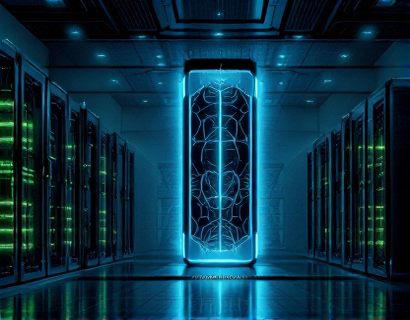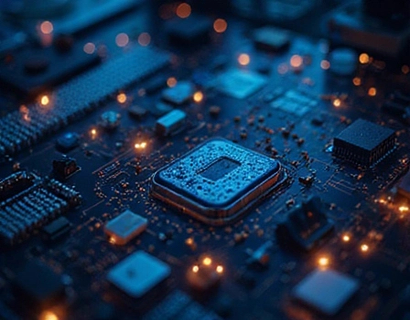Blockchain-Enhanced Registry Software: Revolutionizing Data Management with Security, Transparency, and Efficiency
In the rapidly evolving landscape of data management, the integration of blockchain technology has emerged as a transformative force, offering unparalleled security, transparency, and efficiency. This article delves into the profound impact of blockchain-enhanced registry software, designed to revolutionize how professionals and enthusiasts approach data management. By leveraging the inherent properties of blockchain, such as decentralization, immutability, and cryptographic security, this software not only streamlines registry processes but also builds trust and accountability across various sectors.
Understanding Blockchain Technology in Registry Management
To fully appreciate the benefits of blockchain-enhanced registry software, it is essential to understand the fundamental principles of blockchain technology. At its core, a blockchain is a distributed ledger that records transactions across multiple computers in such a way that the registered transactions cannot be altered retroactively. This ensures data integrity and transparency, as every transaction is verified and recorded in a block, which is then linked to the previous block, forming a chain.
The decentralized nature of blockchain means there is no single point of failure, making it highly resilient against cyber attacks and data breaches. Each participant in the network has a copy of the entire ledger, ensuring that all transactions are transparent and verifiable. This level of transparency is particularly valuable in registry management, where accuracy and trust are paramount.
Enhanced Security Measures
One of the most significant advantages of blockchain-enhanced registry software is its robust security framework. Traditional registry systems often rely on centralized databases, which are vulnerable to hacking and data manipulation. In contrast, blockchain's decentralized architecture distributes data across a network of nodes, making it extremely difficult for malicious actors to alter or tamper with the data.
Cryptographic algorithms ensure that each transaction is securely encrypted and linked to the previous transaction, creating an unbreakable chain. Any attempt to modify a block would require altering all subsequent blocks, which is computationally infeasible. This makes blockchain-enhanced registries highly secure and reliable, providing peace of mind for professionals managing sensitive data.
Transparency and Trust
Transparency is a cornerstone of blockchain technology, and it plays a crucial role in building trust within registry management. In a blockchain-based system, all transactions are recorded in a public ledger that is accessible to all participants. This openness ensures that every change, update, or transaction is visible and verifiable, reducing the risk of fraud and errors.
For professionals in data management, this level of transparency is invaluable. It allows for real-time monitoring and auditing, ensuring compliance with regulatory standards and internal policies. Stakeholders can trust the data they are working with, knowing that it has not been tampered with and is accurate.
Efficiency and Streamlined Processes
Blockchain-enhanced registry software not only enhances security and transparency but also significantly improves efficiency. Traditional registry processes often involve multiple intermediaries, manual data entry, and lengthy verification procedures, leading to delays and increased costs. Blockchain automates many of these processes, reducing the need for intermediaries and streamlining workflows.
Smart contracts, self-executing contracts with the terms directly written into code, can automate routine tasks such as data validation, consent management, and transaction execution. This automation reduces human error, speeds up processes, and lowers operational costs. For instance, in property registry management, smart contracts can automatically update ownership records upon the completion of a transaction, eliminating the need for manual paperwork and verification.
Use Cases in Various Sectors
The applications of blockchain-enhanced registry software are vast and varied, spanning multiple industries. Here are some key use cases that highlight its transformative potential:
- Property Registry: Blockchain can revolutionize property registration by providing a secure, transparent, and efficient system for recording and verifying property ownership. This reduces the risk of fraud, speeds up transaction times, and lowers costs associated with traditional registry systems.
- Supply Chain Management: In supply chain management, blockchain can track the movement of goods from origin to destination, ensuring authenticity and compliance with regulations. This transparency helps prevent counterfeiting and ensures that products meet quality standards.
- Healthcare Records: Patient health records can be securely stored and shared across different healthcare providers using blockchain. This ensures that medical information is accurate, up-to-date, and accessible only to authorized personnel, enhancing patient care and privacy.
- Voting Systems: Blockchain-based voting systems can increase the integrity and transparency of elections by providing an immutable record of votes. This reduces the risk of fraud and enhances public trust in the electoral process.
- Identity Verification: Digital identity management using blockchain can provide individuals with control over their personal data, ensuring secure and verifiable identification. This is particularly beneficial in regions with high rates of identity theft and fraud.
Challenges and Considerations
While the benefits of blockchain-enhanced registry software are clear, there are several challenges and considerations that organizations should be aware of when implementing such solutions:
First, the technology is still relatively new, and there may be a learning curve associated with adopting blockchain-based systems. Organizations need to invest in training and development to ensure their teams are proficient in using these tools.
Second, scalability remains a concern for some blockchain platforms. While many blockchain networks are improving their throughput, large-scale registry management may require solutions that can handle high volumes of transactions efficiently.
Third, regulatory compliance is crucial. Organizations must ensure that their blockchain-enhanced registry software complies with local and international regulations, particularly those related to data privacy and security.
Future Trends and Innovations
The integration of blockchain technology in registry management is just the beginning. As the technology matures, we can expect several exciting developments:
First, the emergence of interoperable blockchain platforms will enable seamless data sharing and integration across different systems and industries. This will further enhance the utility and reach of blockchain-enhanced registry software.
Second, the combination of blockchain with other emerging technologies such as artificial intelligence and the Internet of Things (IoT) will create more sophisticated and intelligent registry systems. For example, AI can be used to analyze data patterns and detect anomalies, while IoT devices can provide real-time data inputs.
Third, the development of more user-friendly interfaces and tools will make blockchain technology more accessible to non-technical users, broadening its adoption across various sectors.
Conclusion
Blockchain-enhanced registry software represents a significant leap forward in data management, offering unparalleled security, transparency, and efficiency. By embracing this technology, professionals and organizations can streamline their processes, build trust, and stay ahead in an increasingly digital world. As the technology continues to evolve, the potential for innovation and improvement is vast, promising a future where data management is not only more secure and transparent but also more efficient and user-friendly.










































